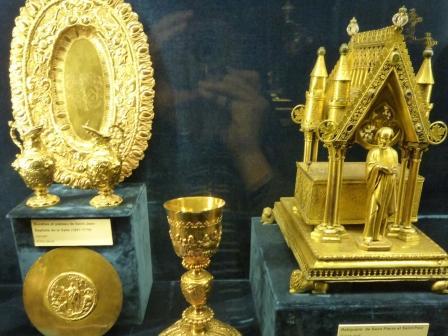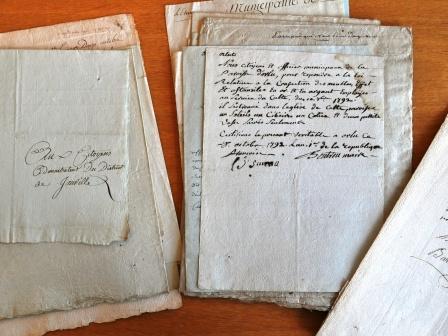Profile
- Research Subject
From the viewpoint of social history, the research is focused on the process of the creation and formation of the religious freedom in Revolutionary and Napoleonic France.
- Research Fields
- The Social History of Modern France religions, The History of Modern France religion policies
- Faculty - Division / Research Group / Laboratory
- Division of Humanities / Research Group of History / Laboratory of Occidental History
- Graduate School - Division / Department / Laboratory
- Division of Humanities / Department of History / Laboratory of Occidental History
- School - Course / Laboratory
- Division of Humanities and Human Sciences / Course of History and Anthropology / Laboratory of Occidental History
- Related Links
Lab.letters


Accepting the rights of religious minorities: The system of authorized religions under the Napoleonic regime
In my experience, historical research is greatly advanced when one notices events that can’t be explained by authoritative theories. For example, the Napoleonic religious policy has been traditionally understood within the framework of the Concordat system, which is a product of the interdependent relationship between Napoleonic France and the Catholic Church. But based on the established theory, there remain certain issues of Concordat negotiation between France and the Holy See that no one can explain. I’ve thoroughly analyzed the printed historical primary sources of the negotiation, and I’ve found that the French Government established an official religious regime that guaranteed Protestants and Israelites, religious minorities in France, the same rights as the majority Catholics. In the National Archives of France, I also found manuscripts from the Ministry of Religions that responded to religious conflicts during the Napoleonic regime.
I’ve shifted my focus of research to the nationalization of Catholic Church property that began in the early period of the French Revolution, and I’m trying to reveal the forgotten truth about the confiscation of sacred vases for their precious metals.


Make an unexpected discovery while studying abroad:
Know your own position in the graduate study room of the university.
Based on reliable historical sources and established theories, the task of the historical researcher is to reveal the hidden truth behind the lines of manuscripts of administrative documents written by government officials. The questions and awareness that arise from the original research plan are valuable, even though this may sound at odds with how research should be. This leads us to a unique result. To make such unexpected discoveries, we encourage young researchers to study abroad, onsite.
The research support system of our university, including study abroad, is great. The graduate can conduct research and engage in other study in the graduate study room, which is a very privileged environment, on the 5th floor. In this room, where there are many colleagues, you’ll gain the motivation to write papers and to prepare presentations for academic conferences. In terms of schedule management, you’ll be encouraged to set your next goal in light of competition and cooperation with your friends in the graduate school.
Message
Unlike the history classes covered up until high school that place emphasis on memorizing historical facts, research on historical science conducted at HU is inherently aimed at pursuing the unknown. Admittedly, while attempting to discover things yet to be known or understood from an ocean of records may seem mundane, it invariably brings us great pleasure. Research on Occidental history is mainly focused on the western hemisphere, with Europe as the center. In each country or region, there are historical researchers who were born, raised, and trained in that region. Therefore, it is impossible for their Japanese counterparts to reach a level comparable to them in terms of language skills and time allotted to research. Then, why do we research foreign history? It all comes down to the fact that we can look at foreign history from a perspective free from various historical shackles such as deep-rooted local interests and common-sense putting restraints on human thoughts. In recent years, trips to European countries have been affordable in price, which allows you to launch an academic life at HU at ease. While Occidental history is a discipline in which many female researchers play a major active role, I look forward to having many students attempt to tackle this field regardless of gender.


